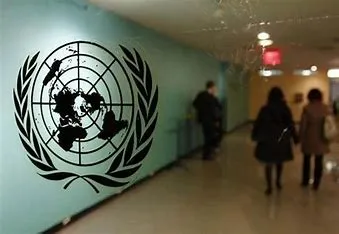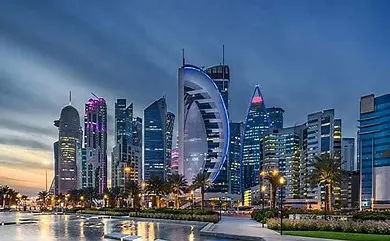We have a sound democratic system based on universal adult franchise. The Constitution was written by wise men and women who had experienced long years of colonisation and had incorporated various checks and balances to ensure that we were not subjugated again, either from outside or, more importantly, from forces within. The people were to elect their representatives who would formulate policies and rules for using the country’s resources for allround development. We, the people, would rule, never looking for a benign ruler. Our institutions were supposed to be forward-looking, framing policies with long-term goals, rather than in response to short-term pressures. Gradually, however, political expediency drove us to choose policies which would produce quick results and public interest was viewed as a hindrance. Thus, environmental concerns, due process and the fair allocation of natural resources came to be viewed as impediments to growth.
Over the years, there has been an abdication of responsibility by leaders and institutions. Knowingly or unknowingly, decision making was outsourced to interest groups, which increased their clout by backing the decision-makers. Today, advice on economic matters is sought from analysts linked to brokerages or hedge funds. IT professionals linked to technology firms advise us on IT and cyber security, and the same happens in every other field like health, education, agriculture, media, infra development and, I daresay, even foreign relations, national defence and strategic affairs. Consulting domain experts is fine — but letting them guide public policy? That is daft. It is so akin to ‘insider trading’ and ‘conflict of interest’ that it is a wonder we tolerate it. Every policy matter must go through a process of consultation amongst all stakeholders — in public view. Only the sunlight of the public gaze and the oxygen of open critical debate can wipe out the disease or the rot in our decision making.
The economic indicators we use are misleading. The most widely used indices hide the disparity in incomes and the gulf between the rich and the poor. The GDP and GNP were indicators developed to show down the performance of the Soviet bloc countries. Recall the words of President John F. Kennedy where he said, “GNP does not allow for the health of our children, the quality of their education, or the joy of their play. It does not include the beauty of our poetry or the strength of our marriages; the intelligence of our public debate or the integrity of our public officials. It measures neither our wit nor our courage; neither our wisdom nor our learning; neither our compassion nor our devotion to our country; it measures everything, in short, except that which makes life worthwhile.”
Observers are now talking about a ‘K-shaped’ postCovid recovery, meaning that while India will go up, Bharat will go down. The overall indices will, however, continue to show a growing GDP. What happened to the trickle-down theory or “the big wave lifting up the small boats”? Have we finally given up on this charade and come to accept that it is alright if the industrial worker, farmer, labourer, mid-level doctor, engineer and teacher keeps getting pushed down the economic ladder, while the rich, financial wizards, senior IT professionals and unscrupulous traders keep amassing wealth? It suits the top one percent to keep their eyes shut and ears closed to the pain of the lowermost ninety percent. But it doesn’t add up — what happened to the remaining nine percent? They are the educated middle class, supposed to be the conscience keepers of the nation. Over the last three decades, they have been lulled by unsavoury levels of consumerism. Their numbers equal the combined population of the UK and France or Germany. They are big enough to sustain an economy amongst them and are busy teaching themselves to remain disengaged from reality. They remain entertained, stay in gated colonies and, apart from ostentatious living and conspicuous consumption, invest their surplus incomes in overseas assets. Have you noticed the growing number of private jets at our airports? Did someone also say ‘colonisation of space’?
There was a time when corporate leaders were institution builders (there are still a few left). They had a long-term vision for their ventures, which dovetailed seamlessly into the nation’s public policy. They set up companies and nurtured them, looking after their employees, giving them a sense of belonging. Training, healthcare, education, recreation and other facilities were a part of a holistically growing enterprise. Today, most promoters are clear that their only motive is to make money — and make it as quickly as possible. There is no vision to create an abiding institution and no qualms in letting companies sink after money has been drawn out through questionable means. They raise companies for slaughter and hollowing them out is a business strategy.
The Industrial Revolution, which generated unprecedented economic progress, was the most effective antipoverty development in the world’s history. Unfortunately, however, over the last five to six decades, capitalism has been misused by those who claim to support it. Business people regularly petition governments for favourable treatment. They want subsidies, tax incentives and regulatory protection against competitors. Have you ever seen them lobby for unfettered competition and free markets? People professing to be probusiness are increasingly anti-free market, pro-cronyism — and therefore, anti-capitalism. These vested interests encourage patronage rather than reward for those who add value to the economy.
Our corporates must realise that nature abhors disequilibrium. The reality is staring at us. There is a huge multitude of people who have been left out of economic development. Why can’t they tie up their goals to the needs of these people? Why can’t they give them work and therefore, money and therefore, create a further market? Remember Henry Ford? In his 1926 book, Today and Tomorrow, Ford had made a challenging statement: “The owner, the employees, and the buying public are all one and the same, and unless an industry can so manage itself as to keep wages high and prices low it destroys itself, for otherwise it limits the number of its customers. One’s own employees ought to be one’s own best customers.” In 1914, when he introduced the assembly line mass production of the iconic Model Ts, Ford doubled the salary of his employees. “We increased the buying power of our own people, and they increased the buying power of other people, and so on and on,” Ford wrote. That is an enlightened vision!
The writer is an Indian civil servant and a former Chairman of the Union Public Service Commission (UPSC). The views expressed are personal. This is the second of a five-part series that will appear over a period of time.























